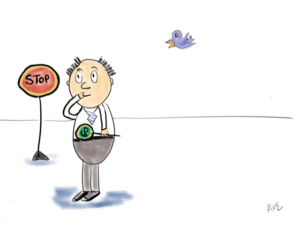
“Alone we can do so little; together we can do so much.”—Helen Keller
A leader told me that he was excited about a big new initiative for his company. The board supported the new direction, which he believed would result in increased market share and exponential success for the company. He asked me to facilitate a team retreat to work on implementation.
In preparation for the meeting, I spoke with participants to learn about their views about the new initiative and what was needed to proceed. It became clear that not everyone was on board and that it would be a challenge to gain support from the various roles. This is not an unusual finding. Often, the senior team has been so involved planning a new initiative that they fail to realize the process for creating alignment. It cannot occur by broadcasting the change and expecting people to joyfully make the change. We know that approximately 70% of change initiatives fail. A primary reason cited is resistance to change. In reality, it is because people have not engaged in real open-minded conversations. Often people see the problems with new initiatives and are genuinely concerned about the well-being of clients, staff and the organization. People see things that the senior leaders do not. Senior executives forget that they have a different perspective and have been living with the challenge for some time.
To create real change people need to understand and embrace the new way. It is important to have meaningful conversations around the current state and to agree on the urgency for transformation. This is best done in an open and safe environment where people can share their views and genuinely listen to one another. Ideally, key people and groups collectively understand why a shift is needed now and the implications of doing nothing. Given the disruptions in the marketplace the need for transformation becomes compelling.
With the need for transformation established and the benefit of open-minded listening to the various stakeholders, the group is ready to establish a shared vision that can be the leverage for upcoming changes.
When people feel respected and that they are heard and aligned with a direction, the implementation flows more smoothly. Those impacted by the change have energy for developing and implementing change because they are involved in the conversation.
I have been fortunate to facilitate many leadership retreats and stakeholder conversations and experience the sense of magic and energy when people do engage in open-minded conversations and create a direction together. It is palpable to see the energy released for transformational change. Organizations embark on new endeavors and relationships are enhanced and become more productive. People learn to “assume positive intent” and not to make people wrong for their views. During these times of disruption, no one can create a real impact alone. We need each other’s strengths and diverse perspectives.
I encourage you to advocate for open-minded conversations at all levels—among leadership teams, across units, with clients and between colleagues. I introduce the OASIS Conversation process in organizations to foster meaningful dialogue.
A colleague and I are offering a workshop on how strategic use of a leadership retreat can launch transformational change for your department, business or organization and your career in Chicago on June 25. Find out more about the retreat here.


 “I don’t know what direction to pursue.” “Should I change jobs or start a business or stay with my current role?” “Should we have a baby?” “Should I apply?” “Should I say yes?”
“I don’t know what direction to pursue.” “Should I change jobs or start a business or stay with my current role?” “Should we have a baby?” “Should I apply?” “Should I say yes?” 
